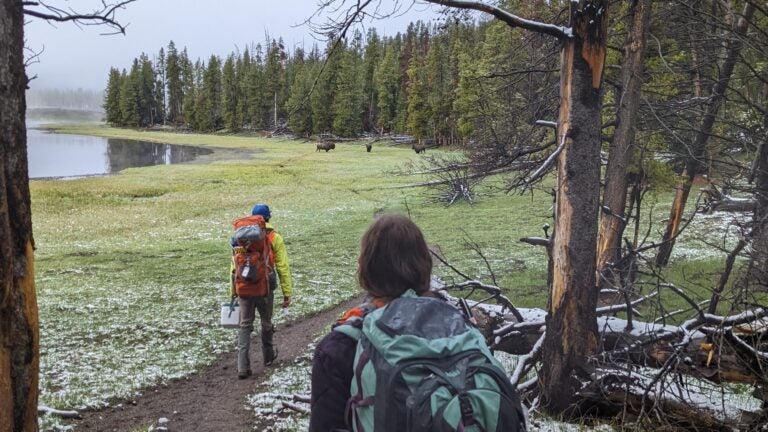
Path to PhD
How to stay on track and meet your goals
-
For students who have earned a master’s degree, the minimum number of course credits required for the PhD is 40 units. No more than four of these units may be earned in 794 Doctoral Dissertation. For students who have not earned a master’s degree, the minimum number of course credits required is 60 units, including a maximum of eight units of 794 Doctoral Dissertation. The qualifying exam committee may require additional course work to insure a sufficient background in the student’s area of specialization. At least two-thirds of the number of units presented for the degree must be 500 level or higher. Although the official minimum GPA for all graduate work attempted at USC is 3.0, the department does not consider a doctoral candidate in good standing unless the graduate GPA is considerably higher than the minimum (approximately 3.25 or above in graduate courses taken within the department). Graduate level or upper level undergraduate classes in other departments may be counted toward an Earth Sciences degree pending the recommendation of the departmental graduate program advisor.
-
Students in the PhD program are expected to develop an independent research program under the guidance of their primary faculty advisor.
-
Students in the PhD program must pass the screening procedure before their 25th unit of graduate credit. Screening consists of a review of the student’s progress and is usually done by the chair and/or departmental graduate program advisor following a written recommendation by the student’s adviser(s).
-
The doctoral guidance committee is formed after the student has passed the screening procedure. The department appoints the committee in consultation with the student’s research advisor and the student. The five-member committee consists of the advisor, a minimum of three other members from the Department of Earth Sciences, plus one USC faculty from outside the department. The committee consults with the student, recommends an appropriate program of study, helps guide the writing and review of thesis proposals and administers the written and oral qualifying examinations.
-
This examination consists of two parts, one written and the other oral. The written exam, which precedes the oral, includes questions submitted by guidance committee members on current geological problems and theory. The oral portion of the exam consists of the defense of two propositions written by the candidate prior to the oral exam. In addition, general questions are posed to test the student’s breadth of scientific and earth science background. The student’s performance is evaluated by the qualifying exam committee, with a pass based on not more than one negative vote or abstention. Those who intend to take the exam must meet all the conditions specified in the section on general requirements for the PhD.
-
An acceptable dissertation based on completion of an original research project is required. Given the importance of publically disseminating and publishing the results of the graduate student’s scholarly research, chapters of the dissertation are typically written in the format of prominent journals in the student’s chosen sub-discipline, and submittal of the chapters for publication is strongly encouraged (see professionalization, below). While the number of publishable chapters in a dissertation is up to the advisor, typically 3 or more chapters meet these criteria.
-
The dissertation committee consists of three members of the qualifying exam committee including the research adviser and the outside member.
-
The defense takes place after the dissertation is substantially complete, and upon unanimous approval by the dissertation committee. It is conducted in the form of an open departmental seminar, but is evaluated by the dissertation committee alone.
-
Incoming students are required to take GEOL 505, Introductory Graduate Seminar in Earth Sciences, where strategies for grant writing, oral and poster presentations, and teaching skills are provided to foster professionalization. Additional professionalization activities open to all ranks take place throughout the year. Teaching experience is considered an important part of graduate training. Each graduate student in the program is therefore required to serve at least two semesters as a teaching assistant. Students are encouraged to attend and present their research at professional meetings, such at the Geological Society of America National Meeting and the American Geophysical Union National Meeting, and similar meetings, and very strongly encouraged to publish their results in peer-reviewed journals.